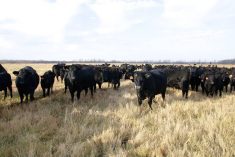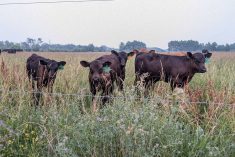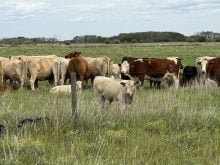RED DEER – A Lethbridge scientist wants to start producing biodiesel in oil rich Alberta.
Kelsey Prenevost, president of Kyoto Fuels in Lethbridge, wants to convert animal fat or canola oil into biodiesel to take advantage of the growing green fuel market in North America.
“You can make biodiesel out of a variety of things,” he said at an Alberta Agricultural Economists Association meeting in Red Deer.
“If it’s fat, you can turn it into biodiesel.”
A microbiologist and former instructor at Lethbridge Community College, Prenevost’s plan is to build a $10 million plant capable of producing 20 million litres a year.
Read Also

Mixed results on new African swine fever vaccine
The new African swine fever vaccine still has issues, but also gave researchers insight into how virus strain impacts protection against the deadly pig disease.
He said government is starting to warm up to the idea because it will not be in direct competition with the petroleum-based diesel industry.
“We want to work with the petroleum industry and take a small amount of that market, and in exchange help out when they switch to low sulfur diesel,” he said.
Touted as an environmentally friendly fuel that burns cleaner than petroleum-based diesel, biodiesel produces white smoke and smells like popcorn when it is burned. Some users suggest there is less engine knocking than with traditional fuel.
Once biodiesel is available at the pumps, Prenevost said it will be blended with petroleum fuel at a rate of five percent but can be mixed as high as 20 percent.
“We have to be very careful when it comes to concentrations,” he said.
“If you shoot too high with biodiesel, there is potential for it to freeze at higher temperatures.”
Canada produces 15 million litres of biodiesel a year, mainly at a plant in Ontario but also smaller amounts in other provinces. The federal government has mandated 500 million litres of biodiesel production as part of its Kyoto Accord commitment.
Prenevost sees cities as potential buyers because they are looking to cut emissions from municipal vehicles such as buses and road equipment. Biodiesel has the potential to reduce the amount of carbon in the air by 78 percent for every litre used compared to petroleum diesel.
Biodiesel is already produced in the United States and Europe, where it is subsidized.
Prenevost said production costs are about 50 cents per litre.















